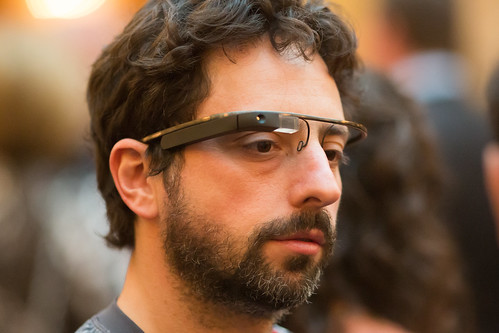 This morning I read an article in the NY Times, “Google Wants to Join the Party, Not Crash It” in which ubiquitous computing was mentioned. The basic point of the article is that tech companies are eager to push towards a future in which our technology is context aware and more integrated into our daily lives. While the context of the article is on social situations, specifically a dinner party, I started thinking about classrooms and how one would control such technology.
This morning I read an article in the NY Times, “Google Wants to Join the Party, Not Crash It” in which ubiquitous computing was mentioned. The basic point of the article is that tech companies are eager to push towards a future in which our technology is context aware and more integrated into our daily lives. While the context of the article is on social situations, specifically a dinner party, I started thinking about classrooms and how one would control such technology.
Imagine a point in the future where Google Glasses are as prevalent as smart phones. Take it a step farther and imagine a device made out of graphene that could be woven into a shirt collar or a bracelet. Educators have enough trouble with students who cheat via their smartphones. One of the basic strategies seems to be banning smartphones from the classroom or at least during tests. How would that strategy work with a tiny wearable computer? What if detecting the device or removing the device was much harder? Would classrooms be equipped with technology that makes these devices unusable for the duration of the test? Already, there is software like Self-Control to block email and internet access. Granted, it is something people impose upon themselves, but it demonstrates a model.
Who knows, perhaps when we are at the point of wearable computers, classrooms will be equipped with terms of service and denying use of a wearable device will be part of the agreement when using educational technology.
How do you educators will respond to ubiquitous computing?

